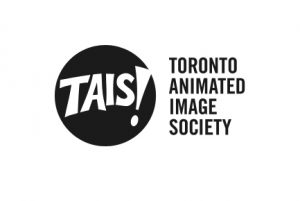 Normally I’d file this under the “from the internets” banner, but I wanted to draw attention to a few things in this piece on Adam Mimnagh and Huminah Huminah Animation in Nova Scotia (vi thechronicleherald.ca).
Normally I’d file this under the “from the internets” banner, but I wanted to draw attention to a few things in this piece on Adam Mimnagh and Huminah Huminah Animation in Nova Scotia (vi thechronicleherald.ca).
The piece tells a story that has become familiar to many of us in the industry. An animator finds himself out of work and, instead of turning back to the family business, going back to school, or switching careers entirely, decides to open up his/her own shop. Sometimes it works, sometimes it doesn’t. After a few years, Huminah Huminah is still around, so, in this case, so far so good I guess.
I think I’ve met Adam once at the Ottawa Festival, I’ve never worked with him directly though. I can’t speak to the quality of the man or his work. He’s had some success, he’s probably made a few mistakes along the way, like most in his position. The article starts getting interesting when it touches on, first, diversification:
“The industry is cyclical,” Mimnagh said. “It goes with the territory, but we are trying to take out some of the highs and lows by diversifying.” (also, congrats to Adam for speaking of the cyclical nature of the business, instead of pandering to fearmongering and using loaded terms like recession)
He gos on to discuss getting into games, something that we mentioned back in our East Coast scene update a few months ago (thanks for the confirmation). Games are a smart move if you can get them to market, something Adam also mentions. I’m not a game guy so I can’t comment much here, but it does make good business sense for a small to midsize studio.
Adam then moves on to discuss why the company is located in Nova Scotia(he’s originally from Toronto).
Huminah Huminah could have been located anywhere in the world, but Mimnagh says tax credits, the provincial government’s interest in growing the sector, and the desire of the company’s core of Nova Scotia workers to stay close to home are keeping the studio right where it is.
“Other places have been wooing us, but the province’s digital tax credit makes us competitive,” Mimnagh said.
Then it goes on to give a pretty good breakdown of how the province is supporting the industry.
The digital media tax credits can help pay half of all Nova Scotia labour costs involved in creating interactive digital products, or 25 per cent of total Nova Scotia expenditures. An additional 10 per cent bonus is available for labour expenditures outside Halifax Regional Municipality.
Jayson Hilchie, a project officer with Nova Scotia Business Inc., the province’s development arm, says other incentives to prospective developers could include payroll rebates, federal and provincial research and development tax credits, and a credit of up to $100,000 toward marketing and distribution expenditures.
Cool to see how it breaks down.
But there’s one other comment that I liked, outright liked.
“It almost makes us competitive with overseas studios that are churning out games. And here we have a good work-life balance.”(bold added by me)
Sadly, work-life balance has become a buzzword in the business world. Anyone who reads Fast Company or any number of other business magazines can pick it up and sound like they care for their employees, but I still like it. I know it’s something that guides me in the decisions I make for myself, and I’d like to think that it guides employers too. Today’s employee has a lot of choices. It doesn’t always feel that way, I know. It’s easy to feel trapped in a job or a city, and it gets compounded as you grow older and have families to consider, but a big segment of the talent in this country is young and mobile. To be fair, you have to look ahead. Because of our tax credit system, you have to know where you want to work next year, and make damned sure you’re set up and paying taxes there by December 31st of this year (which is fucked). But you have choices if you’re smart about it.
Hmmm. Once again, I find I’ve prattled on without any real point, so I’m gonna throw a few bullets at you:
- You young’uns out there, figure out what province you want to be in for 2010, you’ve got a little less than six months to sort it for yourselves.
- Tax credit system in our country kinda sucks.
- Adam, good luck, I hope you’re not full of shit.






I wonder if anyone who has worked directly for Mr. Mimnagh will comment on this article? Adam’s ‘rumoured’ reputation is spotty when it comes to a lot of business practices and fair-pay issues.
I disagree with you Mike in regards to the loaded term ‘recession’, can’t we work in a cyclical industry AND experience a recession?
It may feel more ‘cyclical’ to a business owner who pays their employees far less than the industry standard, but still feel like a recession to the people who value the artists and want to see them fairly compensated for their work.
Fair comment Mark. I, personally, prefer to avoid talk of “recession”. It’s a term with a lot of connotations and I find that those who haven’t been around the busines for a long time tend to grab onto it without really understanding its nature. In my day we always referred to downturns. It’s a small semantic distinction, but one that I feel is worthwhile. To the common reader, a recession tends to indicate a trend towards depression, an inaccuracy that is propogated by media fearmongers, while a downturn’s natural consequence is more likely an upswing.
It’s a very deliberate choice on my part, but one that is informed by my experience.
As far as comments regardinng Adam’s reputation, I’ll leave that to those with firsthand experience. But I will remind readers, while criticism and open discussion is encouraged, outright bashing won’t be tolerated.
Have at it.
I’ve been on both ends and certainly hear a lot of “animation director bashing” from the collective animator community. Its not always entirely justified in terms of pay though, because these guys get pretty squeezed in terms of trying to keep the studios full and gigs consistent. When tapping new markets beyond television, like e-learning (a space I work in) the perceived value of animation is really low compared to the cost, and that is end user driven, not necessarily the client or the animation directors fault.
There are some great folks out there doing their best to run animation studios, and love them or hate them, they are keeping the industry alive with a lot of passion and personal financial risk.
I have worked with Adam directly. I knew Adam back in the days before he started his own studio, when he was still trying to make it as an animation artist in the Toronto area. I certainly don’t want to bash the guy, but I remember he had trouble. He wasn’t a very good artist and lost his job at the studio I was at because of that. But I remember he never had the thinking of an artist. He was always talking about the business end of animation and when he would open his own studio so I think that’s where he belongs rather than in the production end of things. There were 3 or 4 of us who started a small ‘studio’ together back in about 1997 in a tiny warehouse office space in Mississauga. He wanted to call it Humminah Humminah back then, but I think two of us came up with the name Motionworks and convinced Adam to use that ( I confess I still don’t like the name Humminah Humminah :). Adam actually came up with some work right away, doing some stuff for Disney TV. I remember the project didn’t go very well and Adam was having a hard time keeping things organized, but I chalk that up to growing pains. It was clear that he was learning as he was going.
I left our little studio shortly after that first Disney project as Adam seemed to be having a hard time paying us and he had no other work lined up and I had bills to pay. There are some nice things and not so nice things I could say about Adam, but after seeing how well he’s been doing with Humminah Humminah the last few years I guess I have a kind of grudging respect for him. I’m glad he was able to do what he always wanted to do and that he’s successful at it.
Is Adam ‘full of shit’? I would say no. Is he a smooth talker? Yes. But at least he had his eye on the prize.
I wasn’t going to bash, but you cannot just take animation studio heads at there word.
Based on my “first, second & third hand experience”, the only tax credit that seems to benefit animators these days is Employment Insurance. Because you can make more on EI than you can on “Junior Animator salary” (Which is quota based I might add) at Huminah Huminah.
I agree with Ryan’s comment that it’s hard to get work into the studios (it’s part of the animation business after all), but it when the work is there, the animators are often under-valued and over-worked by their employer.
There are, however, a few people out there, like Mark C, who believe in not just quality of work, but quality of life for the animators.
Sadly it seems that one bad banana can spoil the bunch. Most of my peers, myself included have had to move on from animation in Nova Scotia. A good many have left the industry all together because of studios like that of Huminah Huminah.
Animators, don’t undervalue yourselves. You have a skill that very few people come by naturally. Don’t let yourself be exploited.
Good read. Shitty business we are all in.
I like the closing comment of the original article: http://thechronicleherald.ca/Business/1130678.html
“…with some commercial success, increased co-operation among industry players and some resolution to the shortage of skilled workers, “there could be an explosion of jobs in the sector over the next four or five years.”
Um, what? There’s dozens of animators in Nova Scotia right now out of work, most of them with over 5 years of experience. I find it interesting that they don’t even bother applying to Huminah, whys is that? I wonder what this ‘resolution’ might be? Over 300 students graduated from various animation colleges across the country last season, where have they all gone with animation work in Canada at an all time low? The NS tax credit doesn’t seem to be drawing in any animation artists… That’s because animation artists don’t know details about (and don’t really care about) anything that has to do with tax credits. That’s for the producers and broadcasters to figure out, it’s to bring work INTO the regions, not animators, that’s for the studios to do. Animators only care about which province they should move to, before Dec. 31st.
Recession is an inaccurate term for the industry, but the crumbling economy continues to effect the animation industry in Canada, broadcasters and producers from the U.S. have been forced to find less expensive alternatives because of plummeting budgets for animated series.
Singapore offers that cheaper alternative, this has been happening for over a year, look at all the animation studios that have folded as a result. Attractive tax credits can only do so much. Most animators like most studios seem to be in survival mode, trimming their schedules and budgets, hope they can survive this downturn long enough to see profits again.
But that’s just what I’ve been noticing.
Adam is surviving, I wonder how he does it, because in these times it must be very difficult, no matter how much diversifying you try to do.
My experience at Humminah was more of dealing with a disorganized mess. The people seemed nice and Mimmy seemed to really be trying though. With the studio moving on to games and such now I’m hoping they’ve grown up a bit and can avoid problems like redundant work assignments.
As for the “work-life balance”, that’s where they really tried! We were pulling crazy hours for a while, so Mimmy brought in a Streets of Rage arcade machine. A client’s scathing reviews had the team feeling like butt so they held a meeting to cheer people up and plan a day of paintball and beer.
Personally, I’d never work there again, but to some it was exactly what they were looking for. I hope they can keep the studio alive and kickin with this mystical magical diversification because I gotta buncha friends outta work right now(then again… who doesn’t?)
Well I myself have worked at Huminah and as with any job there is always a mix of good with the bad. I agree that Adam has done a good job of keeping some work in his studio. I only worked there on one project and before working there I had a bad perception of the studio based on rumors and other stories from fellow animators. After working there I can’t say I completely disagree with the opinions I had heard before.
I think Adam has done good on his part for his employees in adopting a practice that another studio in the area had been doing for a long while. Improving moral at work by having friday afternoon BBQs or Pizza. I mean for a workforce that is often on a tight budget it feels great to have someone else foot the bill for a meal and maybe some drinks. I think he has been striving to provide a nice studio environment to work in through his current studio space of an old house.
But when it comes down to production I have to say that I ended up with many frustration which led to me and Adam exchanging some words. I think there are too few people in his studio being given the roles of many different people. Much as I can understand that a smaller studio makes some sacrifices to keep their budgets down, when all levels of production start to feel the impact then I think pinching pennies has to be reduced to make sure the production can run smoothly and on schedule. More money can be saved for a company by hiring appropriately rather than the extra costs of going beyond your original deadline. And during my time there it didn’t look like many projects were finishing anywhere near the original deadline.
And in response to KEB’s comment on Huminah’s “Junior Animator” pay rate for a pay-per-footage production. Definately an issue that an friend of mine encountered when they joined me on a project and an issue that lowered my respect for the studio as well. I don’t agree to such unfair practices that would take advantage of new animators to the industry. Their pay will already be decreased by a slower production speed in the beginning, without also having lower pay rate as well. I can understand a lower set weekly salary till they match the standard production quota. I won’t delve more on the pay rate area though there were other areas of inequality among employees.
My overal opinion of Huminah is this. Adam is great at getting work. I don’t know what he does to get it but he should keep it up. But he needs to hire more staff to actually deal with production as I don’t think that is his strong point. Pay the right people for doing what they are skilled in and “listen” when they tell you where a problem is or needs to be corrected. There are other things I could comment on but won’t so this doesn’t get too lengthy. It will be a while before I decide to work there again, and if i do I hope things are running smoother.
“You get what you pay for.” So don’t expect more than what it’s worth. (this is not just aimed at Huminah,)